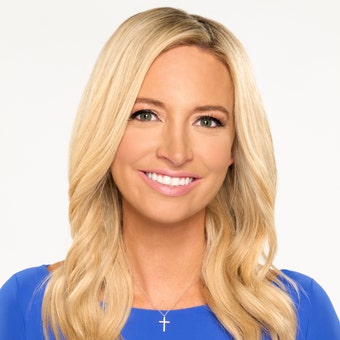Kayleigh McEnany on undergoing double mastectomy, possible political run
Former White House press secretary Kayleigh McEnany opens up on her health issues and future career path on 'The Faulkner Focus.'
Editor’s note: The following is an excerpt from the forthcoming book "For Such a Time as This: My Faith Journey through the White House and Beyond" (Post Hill Press, December 2021) by Kayleigh McEnany.
"Each is the stroke of a brush on His beautiful canvas. Each is the light of one star helping to form a galaxy…" —Melissa in "I Still Believe"
As hard as it was to take those first steps to the White House podium, I knew that I had already been through a much harder battle—my battle with the breast cancer gene.
I grew up knowing that my family had a history of breast cancer. Eight women in my family—mostly aunts and cousins on my mom’s side—had been plagued with this horrible illness. Some were even in their young twenties.
During my senior year at Georgetown, a doctor suggested that my mom test for the BRCA gene. "Based on your family history, I can almost assure you that you have a genetic mutation," the doctor told her.
She was right. My mom tested positive for the BRCA2 genetic mutation, putting her at a roughly 84 percent chance of breast cancer and a 27 percent chance of ovarian cancer.
Although my mom did not have breast cancer, she had an extraordinarily high chance of getting it. She knew exactly what she wanted to do.
Despite the concerns of some in my family, she decided to get a preventative double mastectomy. At the time, the measure seemed radical to many.
Her surgery came before Angelina Jolie had shared that she carried a similar genetic mutation, opting to get the same procedure as my mother.
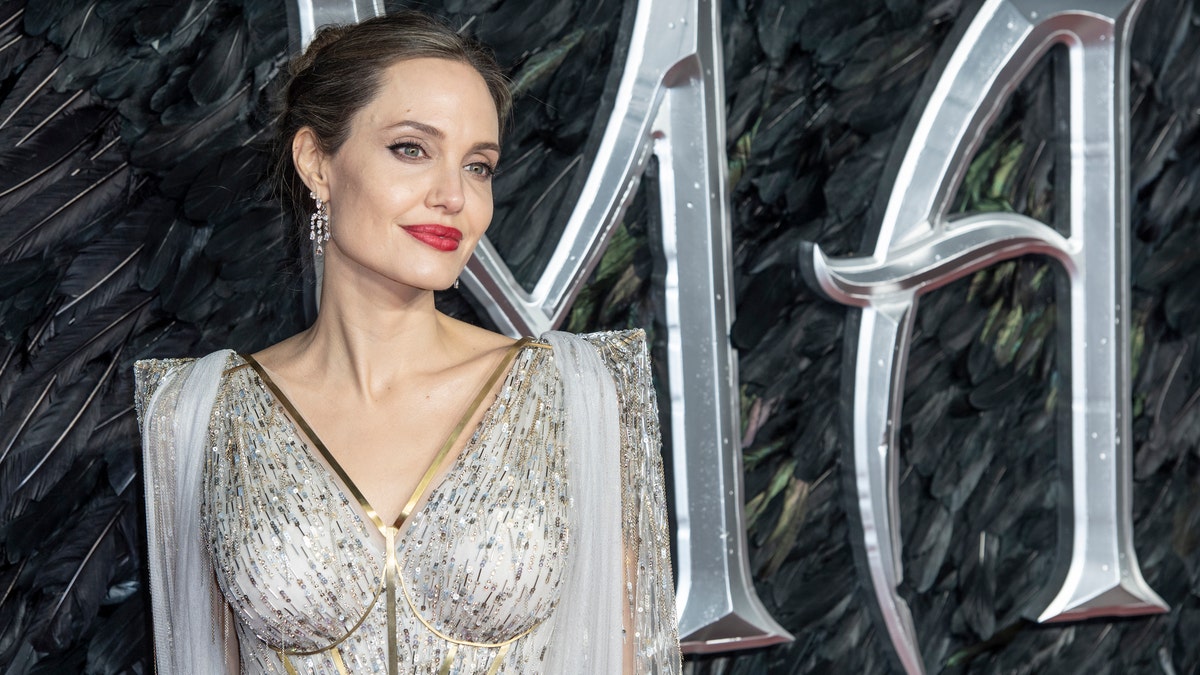
FILE – LONDON, UNITED KINGDOM - 2019/10/09: Angelina Jolie attends the Maleficent: Mistress of Evil European Premiere at the BFI Imax, Waterloo. (Photo by Gary Mitchell/SOPA Images/LightRocket via Getty Images)
When my mom decided to remove her breast tissue in 2009, outside of the medical community, few understood her decision. But I did. I understood it all too well when I showed up in her hospital room and saw her lying there.
BREAST CANCER RISK: WHAT IS THE PALB2 GENE MUTATION? EXPERT WEIGHS IN
As I described previously, "She looked gaunt and frail, but her physical appearance belied her internal strength."
My mom’s decision to have this surgery brought her chances of breast cancer close to zero. I knew that day, at the age of twenty-one, that I, too, wanted to test for the BRCA mutation.
I had a fifty-fifty chance of having the gene, and knowledge was power.
I took the test, and far sooner than I expected, I received a call from my doctor.
Early one morning, close to Christmas, an unknown number appeared on my cell phone. Typically, I wouldn’t answer a call like this, but I did this time.
"You’ve tested positive for the BRCA2 genetic mutation," my doctor told me. Tears began to pour down my cheeks as I walked downstairs to share my diagnosis with my family.
KAYLEIGH MCENANY: AFTER MY 2018 PREVENTIVE DOUBLE MASTECTOMY, HERE’S HOW I’M DOING
My dad was in the kitchen. He hugged me and said those powerful words I will never forget: "Kayleigh, you know your weakness. We all have one in life, but you know yours. You know your weakness, and you can attack it head on."
He was exactly right.
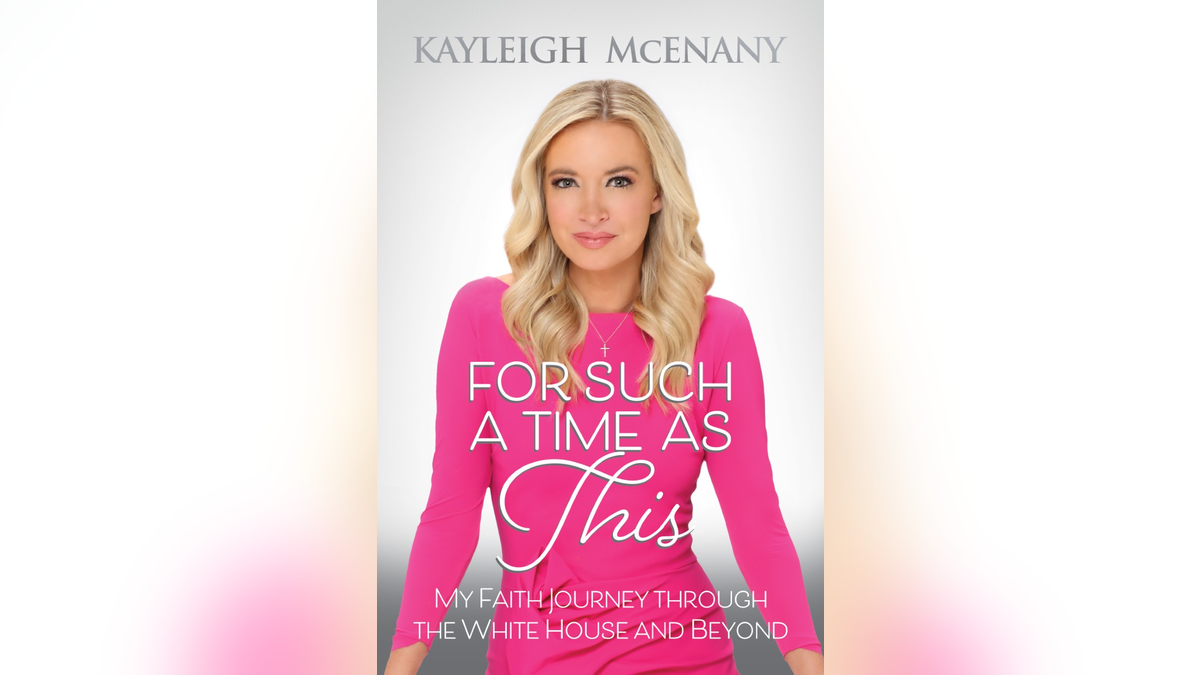
Initially, I set out to get the same surgery as my mom. I wanted to do it fairly quickly. Within the year, I had hoped. But I was single at the time. I wasn’t sure what dating post-mastectomy would be like, and the unknown worried me.
Knowing that my risk of breast cancer and ovarian cancer really did not start to rise until the age of thirty, instead of surgery, I resolved to engage in routine surveillance.
Every six months, I would go to Moffitt Cancer Center and receive either a mammogram or an MRI. Mammograms were often followed by an ultrasound since it was hard to see through my dense breast tissue.
When I went to these appointments, I crossed paths with incredibly courageous women fighting this ugly disease. Some were in wheelchairs. Some had head scarfs, covering their bare scalps where locks of hair once lay.
These women were heroes.
My nearly ten years of surveillance was nothing compared to what these women went through. As I wrote before, "My twenties have been a blessed decade, free from the ravages of cancer, but not the prospect of it."
Indeed, I had many scares and false alarms. Like the time in law school where all I wanted to do was study, but I just couldn’t get the large, hard mass I found in my breast out of my mind.
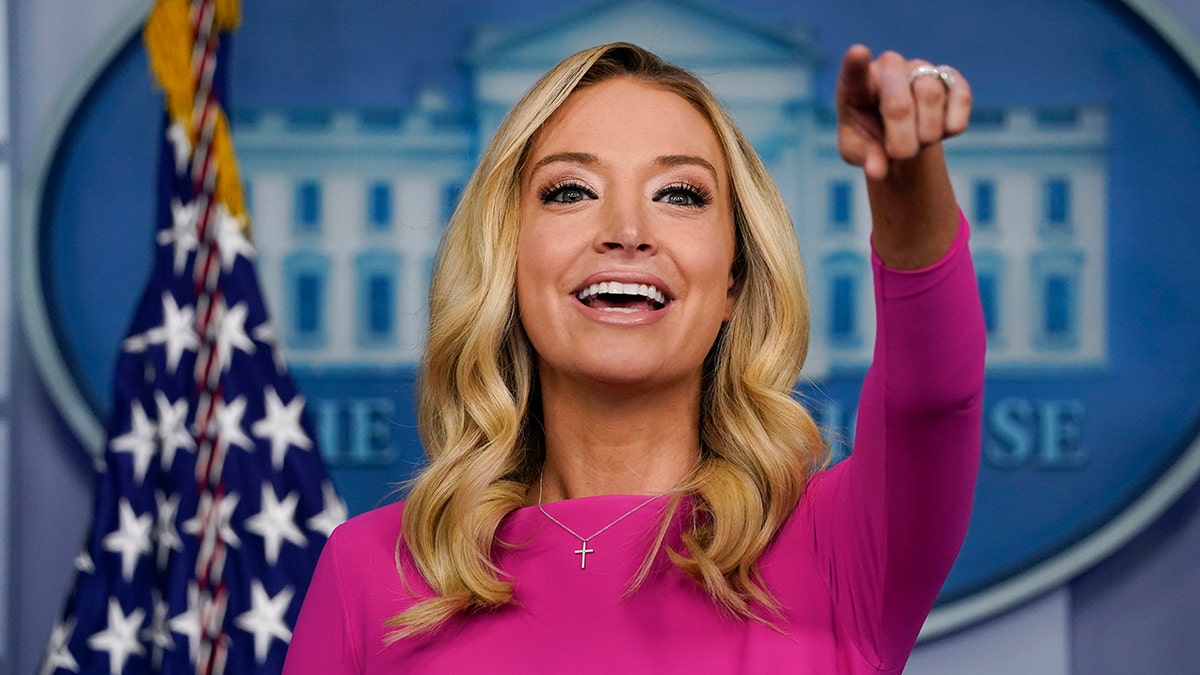
FILE - In this Dec. 2, 2020 file photo, White House press secretary Kayleigh McEnany speaks during a briefing at the White House in Washington. McEnany has signed on as a Fox News contributor. (AP Photo/Evan Vucci)
I was in Miami and away from my oncologist. The OBGYN in the area sent me to get a mammogram. Fortunately, it was nothing to worry about.
Or the time I had my first mammogram. I had just been through the rather awkward process—an experience every woman knows well.
I was back in the waiting room with my mom when I met a lady who had battled cancer. "You don’t have to worry unless they call you back for an ultrasound," she said.
Sure enough, they did just that. "Kayleigh, we need to do an ultrasound," the nurse said.
During the lonely walk back to the ultrasound, my mind was filled with fear as I lay down in the dark room.
Certain I had cancer, tears gushed out as the nurse moved her wand across my breast. I would later learn that ultrasounds were going to be commonplace for me since my tissue was so dense.
At the time, I did not know this.
EXERCISE LOWERS THE RISK OF BREAST CANCER, STUDIES SHOW
After finishing undergrad, I entered the workforce, went to law school, and began dating.
Breast cancer was a constant worry. But that all changed on May 1, 2018.
On that day, nearly ten years after my diagnosis, I decided to have the same surgery as my mom. A big reason I had the confidence to make this decision was because I had found a supportive husband in Sean Gilmartin.
We had been married six months earlier. He knew my plans to have a preventative double mastectomy, and he could not have been more reassuring, promising me that he would love me no matter what.
The night before my surgery, my family and I went to the Tampa Bay Lightning hockey game. My surgery required no food after midnight, and the Lightning game always offered an array of food—pizza, ice-cream, chicken fingers—you name it. But as I tried to enjoy the game (and the food), I was distracted by the burden on the horizon.
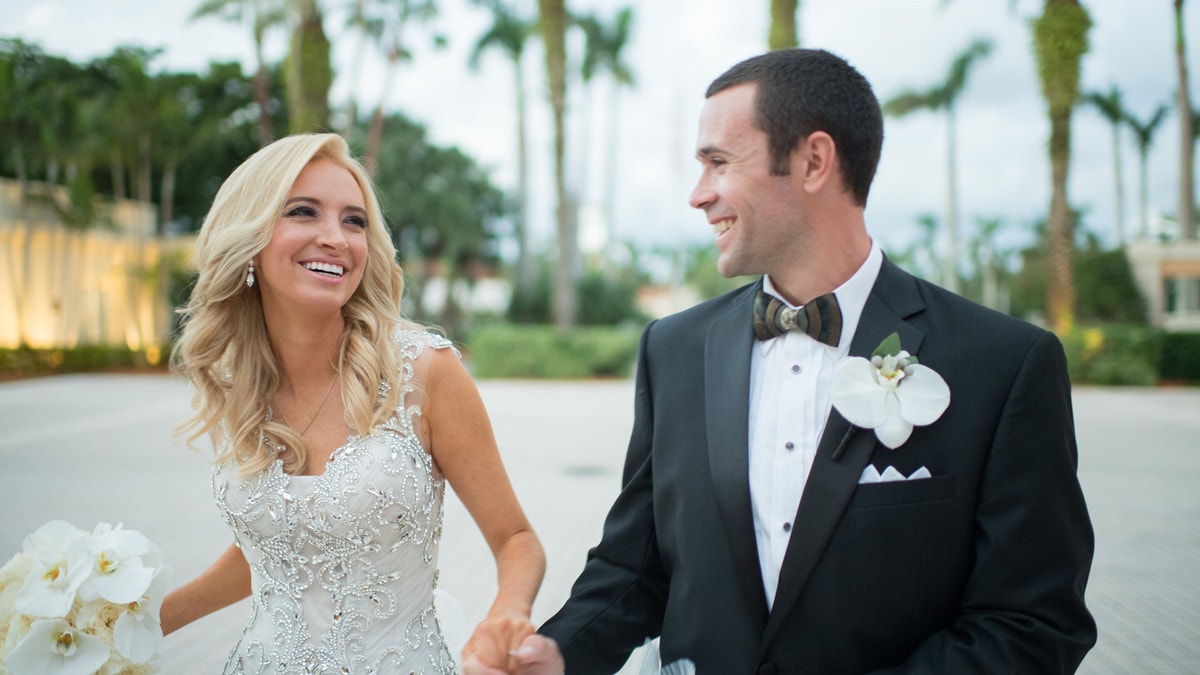
Kayleigh and her husband Sean on their wedding day. (Rodrigo Varela Photography)
That evening, I went home and spent some time writing my thoughts and praying, late into the evening.
The next morning, I took a shower and tried to take in the feeling of the hot water pouring over my breasts.
My doctors had explained to me that, while my nipple-sparing mastectomy would leave me looking virtually unchanged, I would no longer be able to feel in that region.
I tried to relish that last shower, sanitizing my body with the hibicus rinse that the doctor had given me.
After my shower, I put on the pink hoodie and gray sweatpants that my mom had picked out for me, wanting her daughter to be as comfortable as possible.
Then, I put on my gray socks, dotted with bright yellow lemons. The lemon socks reminded me of a television series I was watching called "This Is Us."
In one scene, a new father had just lost one of his triplets at birth, and an older doctor with a soothing voice offered him this wisdom: "I like to think that one day you’ll be an old man like me talking a young man’s ear off explaining to him how you took the sourest lemon that life has to offer and turned it into something resembling lemonade."
I smiled when I looked at those lemon socks. That’s exactly what I was doing—turning lemons into lemonade. But I could not do it alone.
The support of my husband and family and the strength of Jesus Christ were my rock.
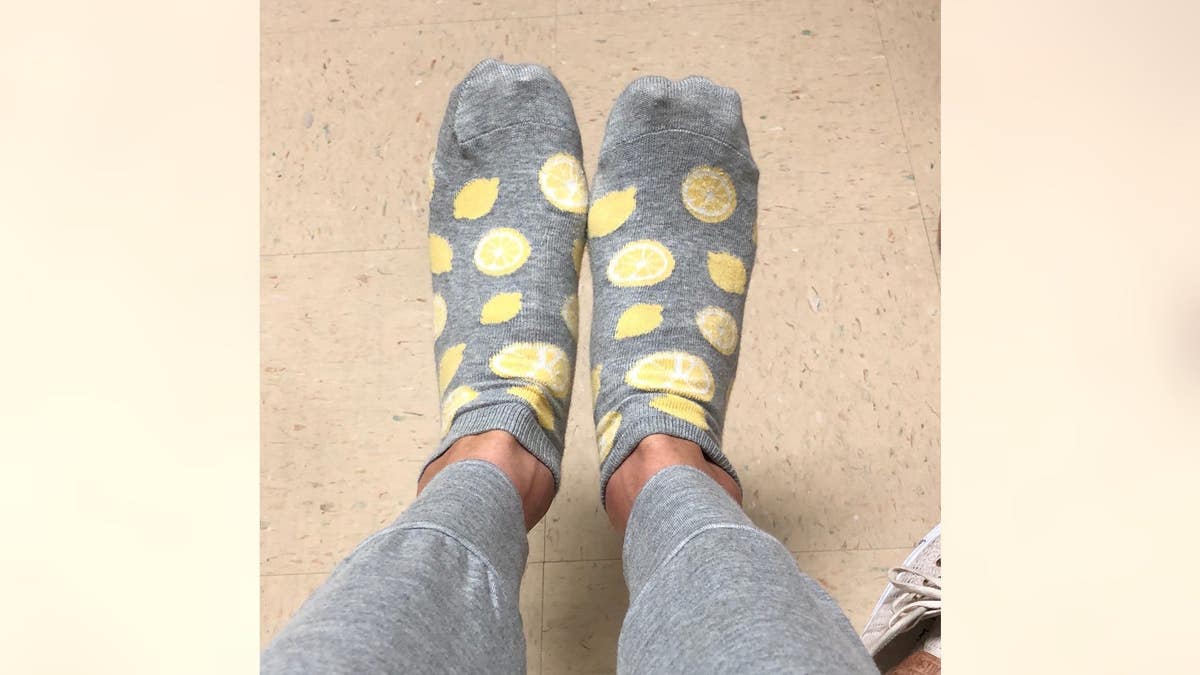
A day prior to my surgery, while flying home to Florida, I gazed out the window and down to Earth when the lyrics of "Carry Me Through" played, reminding me that I would be climbing the mountain before me with the strength of Jesus Christ replacing my own.
As it turns out, that is just what my Savior did. He carried me through with His strength. He also gave me a peace—that same peace I found when I went from tears in my West Wing office to total and complete serenity at the podium.
Despite my apprehensions in the night leading up to my surgery, I had a strange calm in the pre-operation bed before being wheeled back to surgery.
My only tears came when my dad huddled us all together to say a prayer.
As he did, his voice became shaky, and he began to tear up.
I had never seen him cry. After the six-hour surgery, I woke up and saw my mom. My first words were: "That was easier than a CNN panel!"
We still laugh at that.
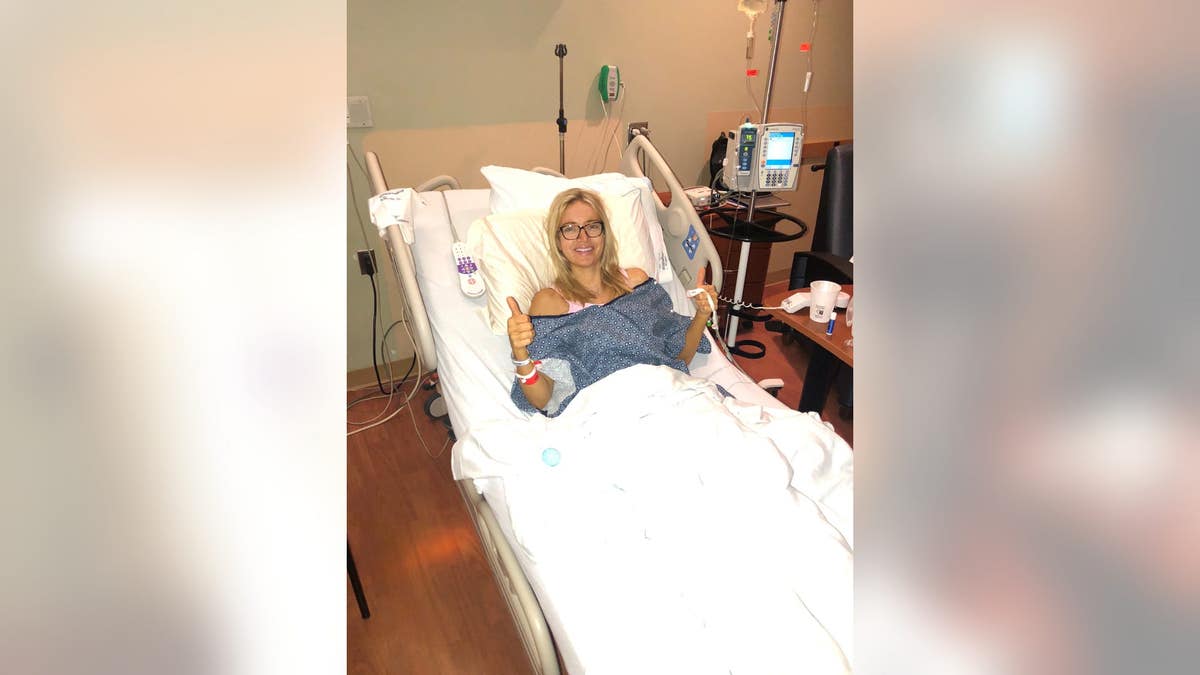
When they unveiled my dressings to reveal my breasts, I proclaimed with amazement, "Did they even do the surgery?!" The nipple-sparing procedure and implants in place left me looking almost the same.
I still looked like me. More importantly than that, like my mom, I could now say with confidence that I would never die of breast cancer.
As I wrote previously, I now live life "free of fear and full of hope."
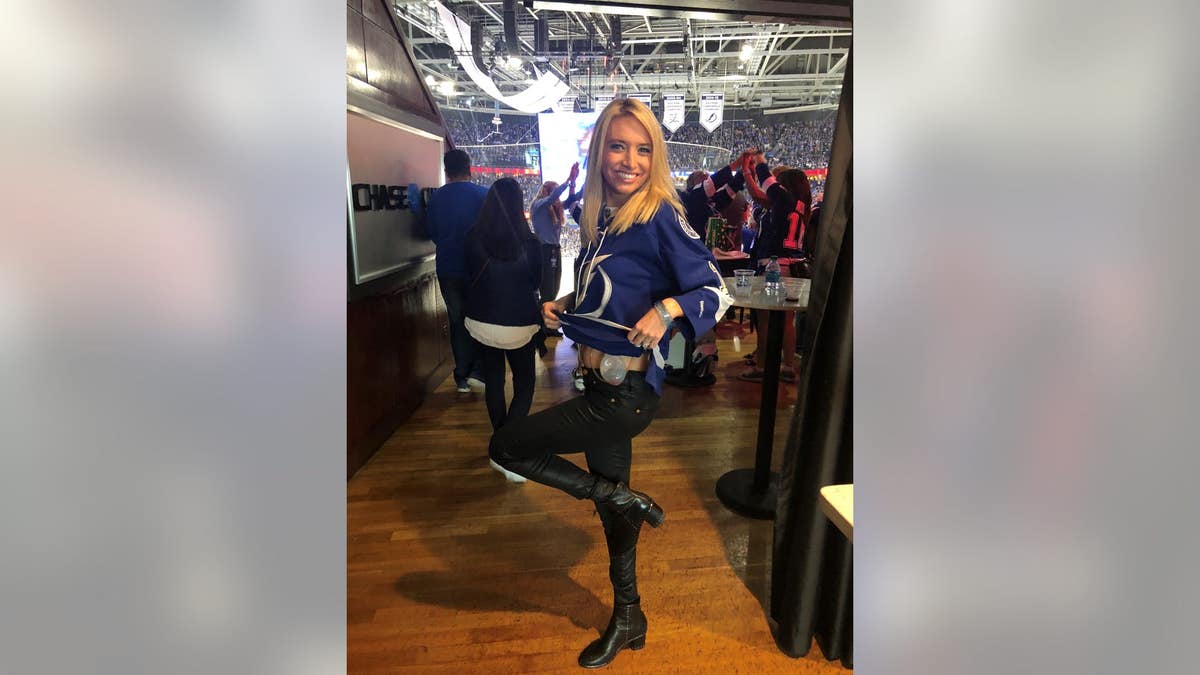
Kayleigh McEnany not long after her preventative double mastectomy surgery
Even so, another scare—perhaps the scariest of all—was still on the horizon.
My husband and my Savior were instrumental in providing me with the confidence to take the step of having a preventative double mastectomy. But, as I wrote before, I credit those who came before me: "I’d like to think I’m strong, but my strength is enveloped in fear, a fear that is assuaged by women who have made this same decision. Women like Angelina Jolie, who wrote about her decision to have a preventative mastectomy. And women like my mother, who boldly took this step without hesitation. Their strength has become my own. It was important for me to share this with you for a very simple reason: this day was only made possible because of these women who so openly and publicly shared their experiences."
In August of 2020, the Republican National Convention was approaching. I knew this would have tremendous viewership and provide an opportunity for me to share my BRCA journey on a national stage.
It could help so many women.
At the time, I was White House press secretary, and I called Jared Kushner one Saturday afternoon.
"Jared, I think women should hear this story," I told him. He was in total agreement and made it happen.
I spent a lot of time on my speech. It would be short, and I wanted every single word to count. It needed to be 100 percent perfect.
As my Wednesday night speech approached, I grew nervous. I would be sharing a highly personal story on a national stage. But just as Angelina Jolie sharing her decision gave me so much confidence, I knew I could do the same for other women.
That morning, as I got ready to go record my speech, President Trump called me before coming down to the Oval Office.
President Trump compassionately said to me, "Everyone is excited about your speech. Deliver it emotionally and powerfully. This message is important."
CLICK HERE TO GET THE OPINION NEWSLETTER
We continued to talk, and I shared with him a little about my mastectomy, how far reconstruction has advanced, and how I had eliminated my chances of breast cancer.
His call gave me so much courage, and it meant the world that he would think to call me ahead of this important moment.
President Trump will never know just how much that call meant.
From the stage of the Republican National Convention, to an audience of 17.3 million viewers, I shared my story—my family history, my decision to get a mastectomy, and the aftermath.
"I was scared. The night before, I fought back tears as I prepared to lose a piece of myself," I shared. "But the next day, with my mom, dad, husband, and Jesus Christ by my side, I underwent a mastectomy, almost eliminating my chance of breast cancer— a decision I now celebrate."
I also revealed some of my first calls following my surgery: "During one of my most difficult times, I expected to have the support of my family, but I had more support than I knew. As I came out of anesthesia, one of the first calls I received was from Ivanka Trump.
Days later, as I recovered, my phone rang. It was President Trump, calling to check on me.
I was blown away. Here was the leader of the free world caring about me."
The president’s call came long before I worked for his campaign or in the White House. He was truly calling because he cared.
CLICK HERE TO GET THE FOX NEWS APP
To this day, I still have women come up to me and say how much that speech meant to them. Some with breast cancer. Some have genetic mutations.
Every story is unique. One in eight women will be diagnosed with breast cancer in their lifetime. As women, we fight this fight together.








































